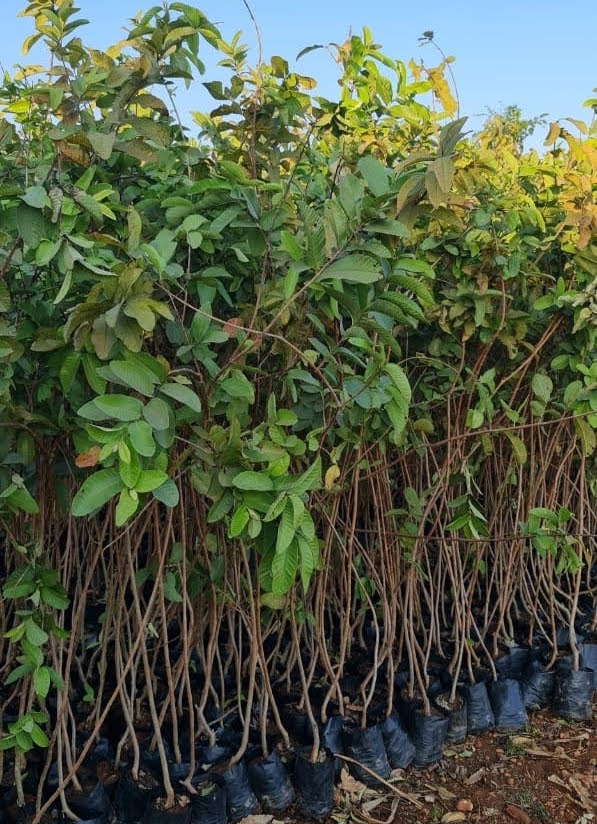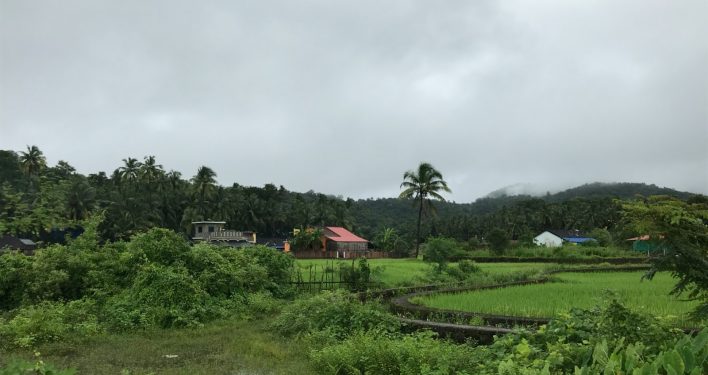Petrichor
Salud!
No, you did not sign up for this. But do stay for a bit. And then some.
This is our first monthly digest. We hope to encapsulate our activities and learnings from the last month, highlight the work being done by grantees, post announcements, amplify asks from the network and pin environment-related information that has piqued our attention.
This month’s digest is titled Petrichor– the smell of the earth after the first rain– and here’s a bonus 4-minute podcast on the word’s connection to plant ecology.
June at Rainmatter Foundation started with a gathering of all the grantees on the occasion of World Environment Day. Soon after, we had commitments and pick-ups from three entities– WePlant, SayTrees and the Bangalore International Airport Limited— for over 5,000 saplings cumulatively from our Bangalore nursery for planting them in public/community spaces. We hope to find more takers for these chigurus (new shoots), so please spread the word in your community.

The nearly 6-ft saplings at the Zerodha/Rainmatter nursery in Harohalli, Bangalore. Photo: Rainmatter
We spent days learning about emerging tools, new methods and models in multiple sectors, including possible livelihood options for communities that voluntarily aid conservation of landscapes, atmospheric removal of carbon and returnable B2B and B2C packaging (paper and flex materials). We also spent time with a few EV companies involved in lifecycle management and renting out EV bikes to businesses.
We were pleased to engage with the Rotary Club of Bangalore for the revival of the Palar river basin. And we struggled to make sense of the consultation paper on the India Digital Ecosystem of Agriculture (IDEA) by the Ministry of Agriculture and Farmers Welfare.
From the community
Farmers for Forests has been busy developing a tree counting algorithm using drone imagery to measure change in tree cover over a short time-period. They are doing this in Raigad and Gadchiroli districts in Maharashtra. On the cards is also a pilot reforestation of a small mangrove patch.
Vidhi Centre for Legal Policy has been working on a project about the legal challenges in regulating exotic species (plants and animals moved from their original range) in India. This follows their review of the Ministry of Environment, Forest and Climate Change’s June 2020 advisory, granting a six-month amnesty period during which individuals in legal or illegal possession of species listed in the CITES (Convention on International Trade in Endangered Species of Wild Flora and Fauna) appendices could make declarations.
Noticeboard
📌 A virus is affecting bee colonies: Mongabay’s explainer on the Thai sacbrood virus (TSBV) states the “disease kills bees when they are larvae, thereby reducing the population of bee colonies”. The virus appears to be affecting apiculture in Karnataka, with Mongabay quoting one professional beekeeper from Shivamogga as saying: “A few years back we discontinued beekeeping due to the outbreak of this virus in south India. The migration of bees from different states could be one reason for this outbreak. Now, we see TSBV active again in the bee colonies of the Western Ghats in Karnataka.”
📌 The Nature Conservation Foundation and the Centre for Wildlife Studies are raising funds. Consider backing their Lakshadweep fisher community or the Adopt a PHC initiatives. Bonus karma points for spreading the word.

Cyclone Tauktae upended the livelihoods of Lakshadweep’s fisher community. Photo: NCF
📌 Farmers for Forests is seeking an advisor with experience in forestry and ecology to navigate questions about soil microbial biodiversity, species best suited for local ecology, plantation and post-plantation practices. Mail Krutika: [email protected]
📌 Tech genie, Akshay, is an email away for all kinds of web, software and data assistance for the community. Think of him as an extra hand for your tech team. The genie’s address: [email protected]
And if you know of or have recommendations for services focusing on environment and sustainability in India, please share your suggestions on Grove. #tia
Parting shot
Ever wondered what it feels like to be an octopus? Why are they so intelligent? Do they dream? Do they have consciousness? Read Sy Montgomery’s heart-warming account of an octopus called Athena. The article later became the first chapter of her book, The Soul of an Octopus. #HighlyRecommended
Until next time, may your roads be auspicious.
śubhāste panthānaḥ santu
Team Rainmatter Foundation

